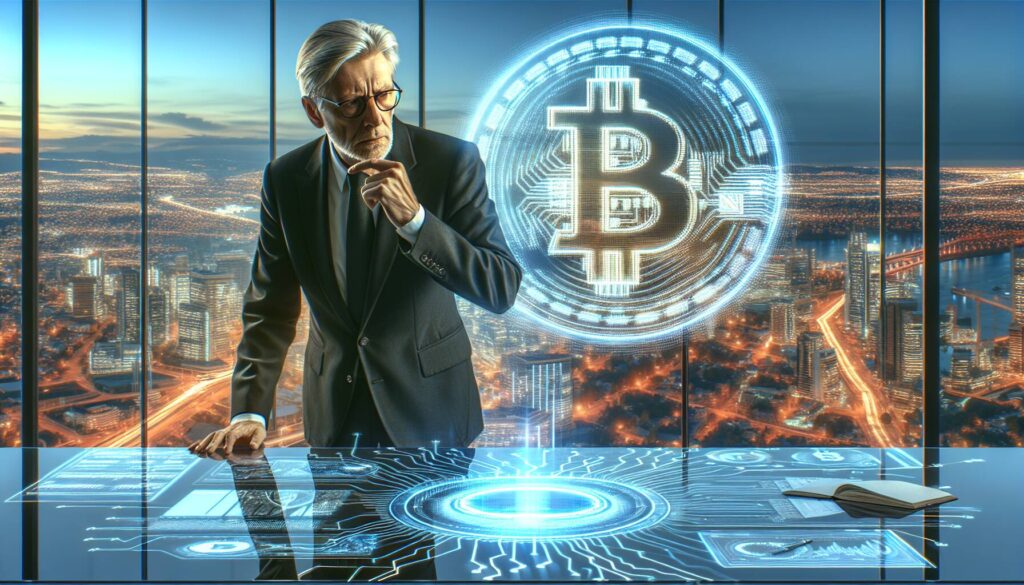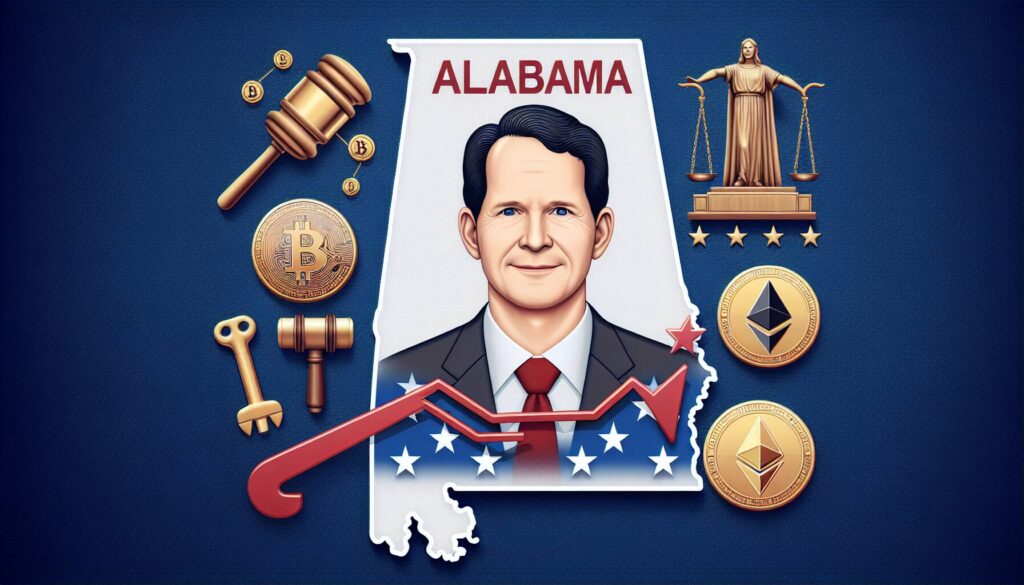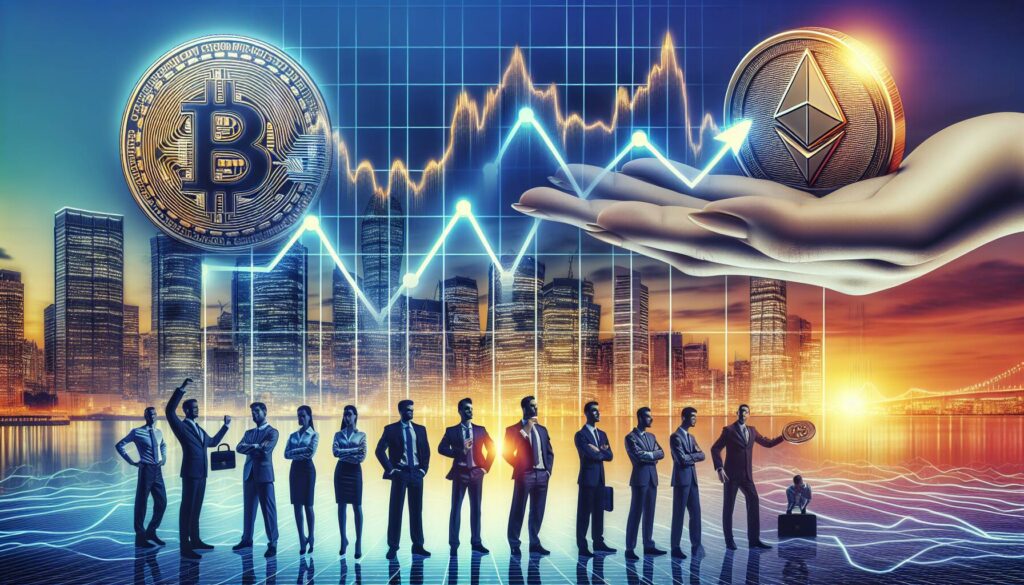In a recent interview with CBS News, JPMorgan Chase CEO Jamie Dimon reaffirmed his long-standing skepticism towards Bitcoin (BTC), stating, “Bitcoin itself has no intrinsic value.” His comments highlight ongoing concerns regarding the cryptocurrency’s association with illicit activities, including money laundering and sex trafficking. While Dimon’s criticism echoes his historical stance against Bitcoin, it stands in contrast to the evolving views within the financial sector, as exemplified by BlackRock CEO Larry Fink, who has embraced Bitcoin in recent years.
Despite Dimon’s negative perspective, it’s worth noting that JPMorgan has continued to capitalize on the growing demand for cryptocurrency-related services. The bank has become an authorized participant for BlackRock’s spot Bitcoin ETF, demonstrating a strategic alignment with the cryptocurrency market while maintaining its critical outlook. Furthermore, JPMorgan has recently rebranded its blockchain platform from Onyx to Kinexys, signifying its intent to focus on real-world tokenization—an effort aimed at overcoming the limitations of current financial infrastructures.
“The goal is to reduce limitations of the current financial infrastructure, like tokenization of real-world assets (RWA),” said JPMorgan’s co-head of Payments, Umar Farooq.
Looking ahead, JPMorgan plans to introduce on-chain foreign exchange capabilities as early as the first quarter of 2025, a move that could incorporate elements of blockchain technology into traditional finance. As the discussion around cryptocurrencies intensifies, Dimon’s remarks come at a time when former President Donald Trump is expected to create a more favorable regulatory environment for Bitcoin and other digital assets, further igniting interest and debate in the ever-evolving landscape of cryptocurrency.

JPMorgan Chase CEO Jamie Dimon on Bitcoin: Key Points
Jamie Dimon, the CEO of JPMorgan Chase, has maintained a consistent skepticism towards Bitcoin. His views and the actions of JPMorgan Chase have significant implications for both the financial industry and individual investors.
- Intrinsic Value of Bitcoin: Dimon believes that “Bitcoin itself has no intrinsic value,” suggesting that he sees it as a speculative asset.
- Use in Illicit Activities: He has pointed out Bitcoin’s association with illegal activities such as sex trafficking and money laundering, which may lead potential investors to be wary.
- Long-term Critique: Unlike some industry leaders, Dimon has not changed his critical stance on Bitcoin, illustrating a potential divide in perceptions of cryptocurrency among financial leaders.
- JPMorgan’s Profit from Bitcoin: Despite Dimon’s negative outlook, JPMorgan has benefited financially from Bitcoin’s rise, including participating in BlackRock’s spot bitcoin ETF.
- Rebranding of Blockchain Platform: JPMorgan recently rebranded its blockchain platform from Onyx to Kinexys and aims to enhance tokenization of real-world assets, indicating a strategic pivot towards blockchain technology.
- Future On-chain Capabilities: The bank plans to introduce on-chain foreign exchange capabilities by early 2025, which could revolutionize traditional financial transactions.
- Political Context: Dimon’s comments come just ahead of Donald Trump’s return to the presidency, who has promised a more favorable regulatory landscape for cryptocurrencies, potentially altering the market dynamics.
These points illustrate the complex relationship between traditional banking, emerging technologies like cryptocurrency, and the evolving regulatory landscape, which could impact investors’ decisions and the future of financial products.
Jamie Dimon Doubles Down on Bitcoin Criticism Amid Industry Shift
The ongoing dialogue around Bitcoin has become increasingly complex, especially with influential leaders like JPMorgan Chase CEO Jamie Dimon firmly sticking to his critical stance. While Dimon openly dismisses Bitcoin as lacking intrinsic value and associates it with illicit activities, other major players, like BlackRock’s Larry Fink, have pivoted toward a more crypto-friendly outlook. This divergence presents both competitive advantages and disadvantages within the evolving financial landscape.
Competitive Advantages: Dimon’s steadfast criticism might resonate with traditional investors and institutions that prioritize regulatory compliance and risk mitigation. By remaining skeptical of Bitcoin, JPMorgan positions itself as a cautious trailblazer in an uncertain market, appealing to clients that value stability over speculation. Additionally, the recent rebranding of their blockchain platform to Kinexys underscores a commitment to enhancing real-world financial applications, potentially setting JPMorgan apart from competitors focusing solely on cryptocurrency investments.
Competitive Disadvantages: On the flip side, Dimon’s reluctance to embrace Bitcoin could alienate a segment of tech-savvy investors increasingly drawn to digital assets. As major financial institutions pivot toward crypto integrations, JPMorgan risks falling behind if it does not adapt its narrative. Moreover, the centralized nature of their blockchain initiatives might draw criticism from decentralized finance advocates, who prioritize peer-to-peer transactions without intermediaries.
The environment is shifting, especially with politicians like Donald Trump suggesting a more favorable regulatory backdrop for cryptocurrency. This may spell opportunities for alternative financial entities unafraid to innovate, thus putting pressure on JPMorgan to reconcile its forward-looking blockchain projects with its executive’s public sentiment about Bitcoin. The potential clash of ideals could lead to internal and external scrutiny as clients and investors weigh the bank’s mixed messages.
Ultimately, while Dimon’s opinion might benefit those who favor traditional banking approaches, it could also create challenges for JPMorgan in attracting cryptocurrency enthusiasts and businesses looking for a banking partner willing to embrace digital assets wholeheartedly.

















